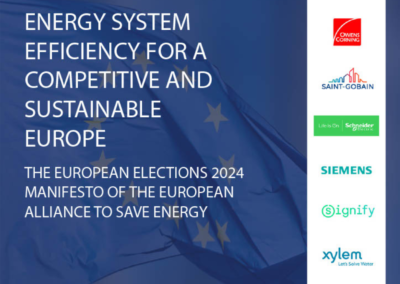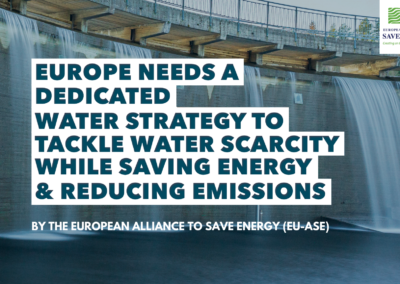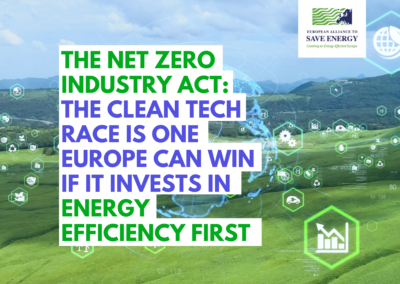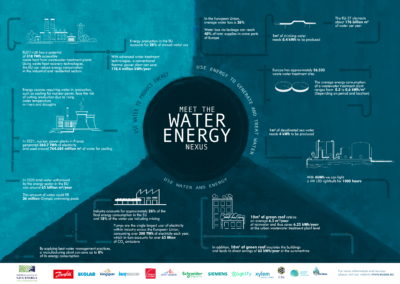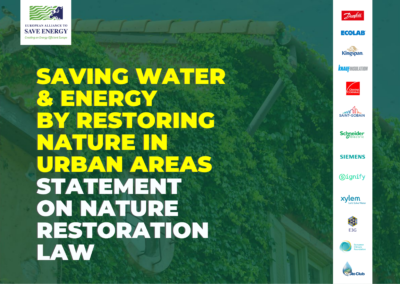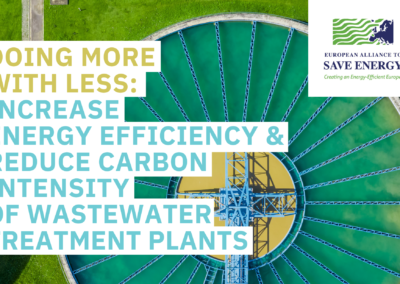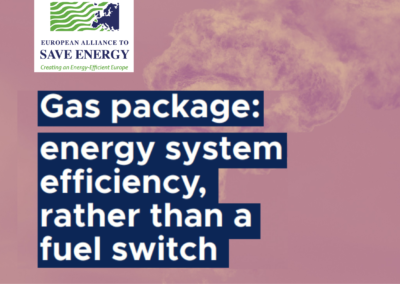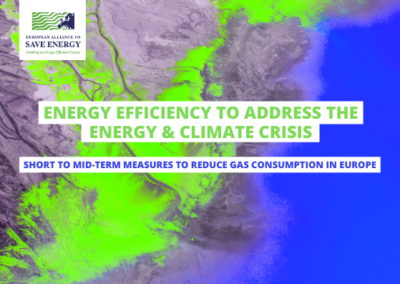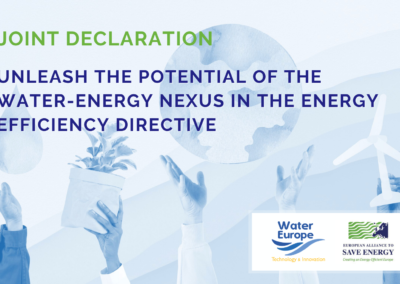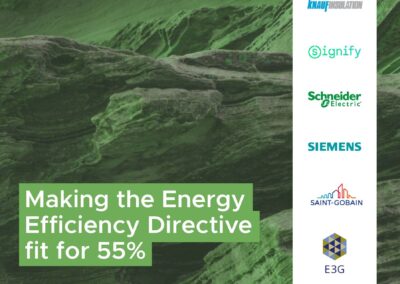Papers
EU-ASE Manifesto 2024 – 2029: Prioritizing energy system efficiency for a sustainable and competitive Europe
As we approach the European Election in June 2024, we call upon the newly elected institutions to follow a series of actions to achieve a climate-neutral Europe by 2050.
read moreEurope needs a dedicated water strategy to tackle water scarcity while saving energy and reducing emissions
The next EU institutional framework must work on a European Water Strategy – a comprehensive, integrated response to tackle water scarcity, focusing on the synergies between water & energy use: the Water-Energy Nexus. Water scarcity is a growing concern in Europe, driven by climate change, population growth, urbanization, and...
read moreThe Net Zero Industry Act: The clean tech race is one Europe can win if it invests in Energy Efficiency First
The European Alliance to Save Energy (EU-ASE) recognizes the need for a systemic change in Europe’s industrial policy to address the climate and energy challenge while keeping Europe’s economies more competitive. In it’s urgency the Commission has overlooked a sector that is truly crucial for Europe to reach net-zero by 2050: the energy...
read moreMeet the Water-Energy Nexus
We are thrilled to share our latest publication, an informative infographic highlighting the Water-Energy Nexus. In today’s climate and energy crisis, understanding the water-energy nexus is crucial for driving substantial savings in both resources while reducing emissions and enhancing European industry competitiveness. Meet the...
read moreSaving Water and Energy By Restoring Nature In Urban Areas: Statement on Nature Restoration Law
European Alliance to Save Energy (EU-ASE) welcomes the European Commission’s proposal for a Nature Restoration Law and supports the ambition presented by the ENVI rapporteur in the European Parliament to increase the restoration objective and set higher targets for the restoration of terrestrial, coastal, freshwater, marine, and urban...
read moreDoing more with less: Increase energy efficiency & reduce carbon intensity of wastewater treatment plants
The European Alliance to Save Energy (EU-ASE) welcomes the European Commission’s proposal for a recast of the Urban Waste Water Treatment Directive (UWWTD). This document gathers our inputs to the co-legislators that are due to negotiate and finalise the draft proposal in the next months. The UWWTD played a substantial role in improving water...
read moreGas package: energy system efficiency, rather than a fuel switch
In December 2021, the European Commission issued two proposals, the Gas Directive 2009/73/EC and the Gas Regulation (EC) No 715/2009, laying down the foundation for a European low-carbon gas industry, the so-called “Gas Package”. The Commission’s approach should depart from this old paradigm and uphold the commitment to the Energy Efficiency...
read moreShort to mid-term measures in energy efficiency to reduce gas consumption in Europe
The European Union is set to reduce fossil gas imports from Russia by 2/3 by the end of 2022 and to become independent from all Russian fossil fuels well before 2030. This paper summarises the outstanding contributions that energy efficiency can play in the short to mid-term to greatly reduce Europe’s reliance on fossil fuels. The Russian...
read moreUnleash the potential of the water-energy nexus in the energy efficiency directive
The European Alliance to Save Energy (EU-ASE) and Water Europe (WE), call on the European Parliament and the Member States to unleash the potential of the Water-Energy nexus in the Energy Efficiency Directive (EED). The nexus holds the potential to generate large-scale energy and water savings across sectors and reduce Green House Gases (GHG)...
read moreMaking the Energy Efficiency Directive fit for 55%
Following the adoption of the Climate Law and in view of its higher climate ambition for 2030 and 2050, the European Commission proposed to revise the Energy Efficiency Directive. Energy efficiency must become the bedrock of a decarbonised energy system. Amending the Energy Efficiency Directive (EED) is the starting point for the Union to deliver...
read more
